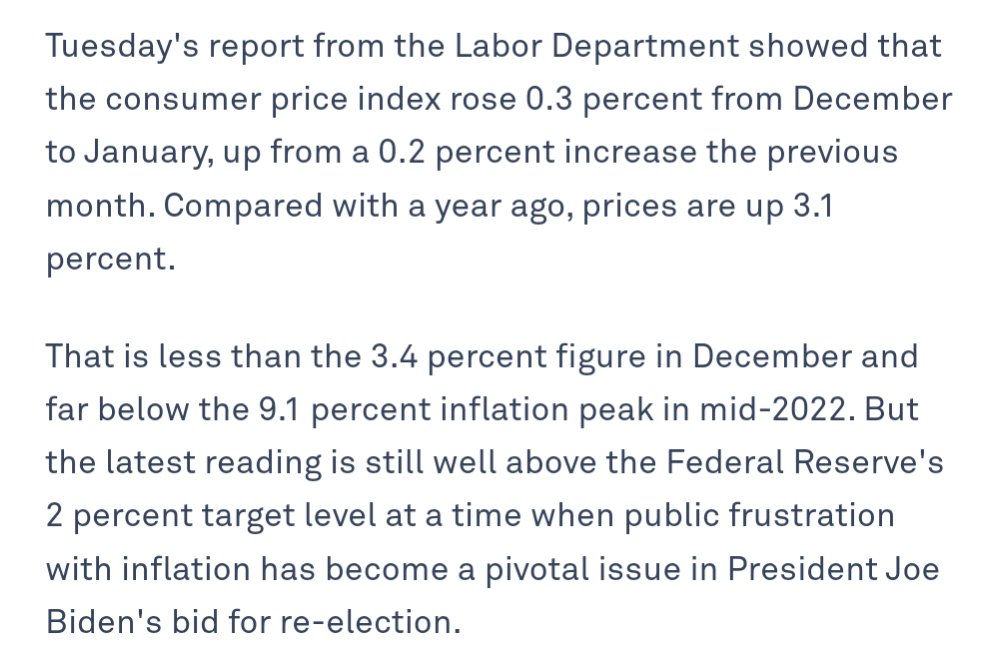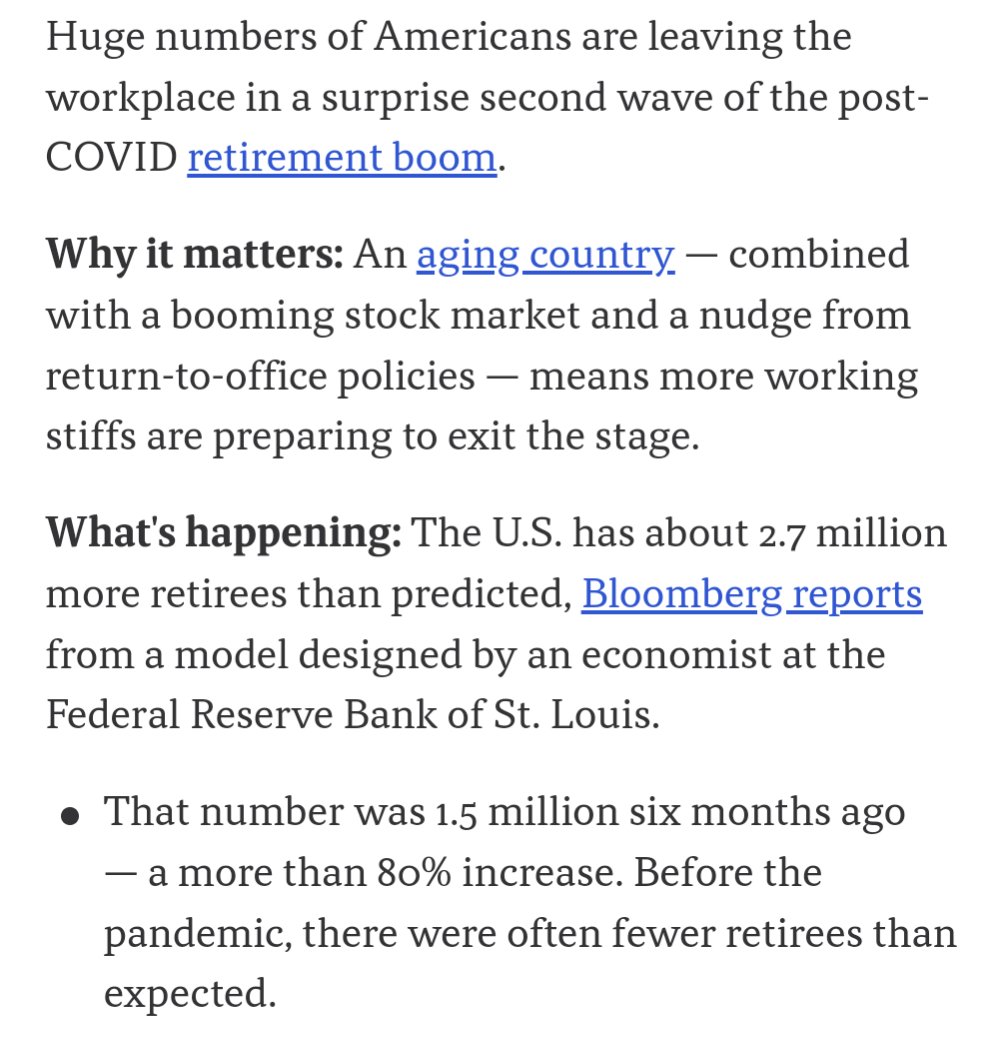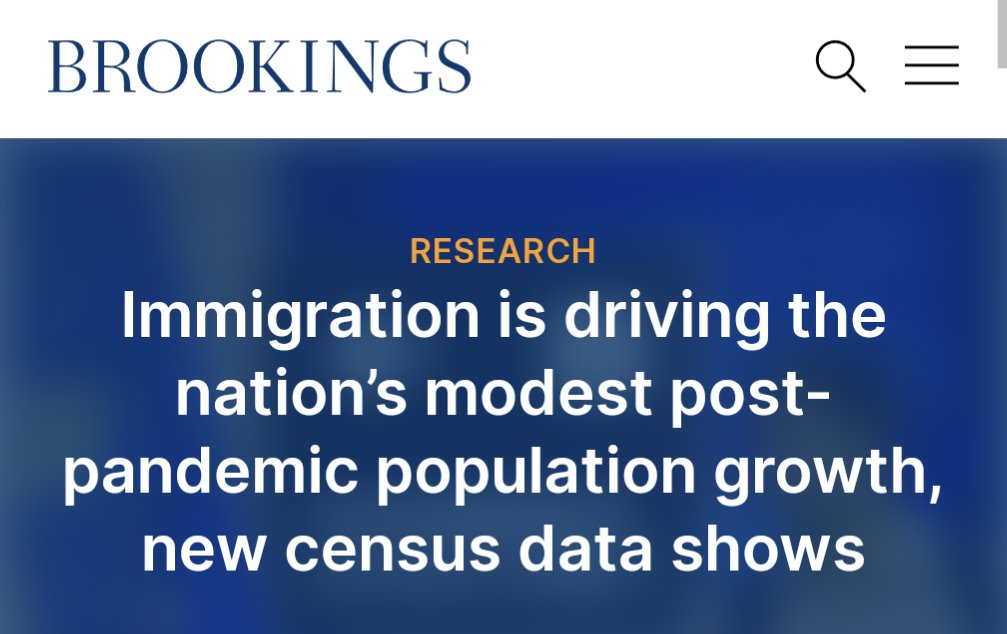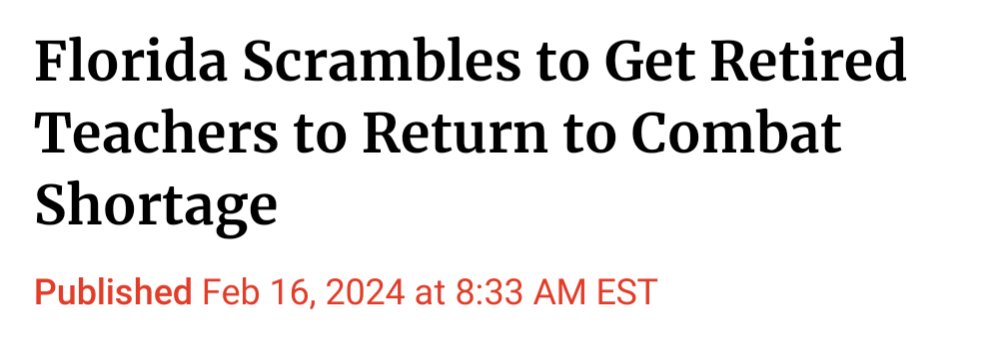Someone asked me, "if many people are gradually developing long COVID, wouldn't we see it in the economic data?" Yes, we would. And in fact we are. A few recent examples:
In the UK, the number of people with long-term sickness has been rising. Because of this, there are now fewer people working in the UK than before the pandemic began. 

Something similar is happening in Germany. Workers are now taking so many sick days that it's pushed the country's economy into recession. 

But what about the US? The economy is growing, and the number of jobs now exceeds pre-pandemic levels. We've been more aggressive with booster shots, so maybe that's a factor. But what's likely bigger is immigration: we've simply taken to importing healthy people
The same is true for employment growth. The country as a whole now has more jobs than before COVID, but there are actually fewer US-born workers than there were in 2019. 

I've written before about the research showing that people who work in public-facing jobs are more likely to develop long COVID (likely due to more frequent infections)
https://twitter.com/SalvMattera/status/1734803530014449759?t=fAUBYSwC3YUSdI7hn1SLUw&s=19
Because of this, you would expect certain jobs to be especially difficult to fill - a lot of people who were once qualified to fill them have gotten sick. And the people you bring in to replace the sick people will eventually get sick, too.
If you go back and study the history of the Black Death, you'll find that inflation surged rapidly and remained high for decades. The plague killed too many people, and those who survived demanded much higher wages, pushing inflation up. 

We're living through something similar, on a lesser scale. Inflation has surged over the last few years and has remained stubbornly high despite the Fed's attempts to fight it. 

Looking ahead, some predictions I'll make so long as COVID continues to spread and disable people: the number of long-term sick/disabled people will continue to climb in countries that reliably maintain such statistics.
Inflation will remain elevated.
Countries that cannot easily import healthy people through immigration will struggle economically.
Countries that can import healthy people (e.g. the US) will do better, but will face a lot of internal division over the rapidly rising number of immigrants.
The premium paid to college-educated workers will almost vanish, to where having an average college degree will confer virtually no additional earnings. Consequently, college enrollment will plunge and schools will shutter.
If these things are happening, then it is evidence of a population increasingly sickened by the long-term effects of multiple COVID infections. If they are not, then perhaps COVID is no longer a problem.
The idea that we had to drop COVID precautions to save the economy was always completely nonsensical. Since no one has a good understanding of what long COVID is, who does or doesn't get it, what the long-term prognosis is for long COVID patients,
dropping COVID precautions and infecting the world on a massive scale repeatedly may ultimately prove to be far more financial devastating then even the most severe lock downs of 2020.
Imagine if say, a third of the world were to eventually develop a moderate or severe form of ME/CFS - how exactly would we deal with that? Could we deal with that? I'm not sure that will happen, it may be unlikely, but the data suggests that it is entirely possible.
It was never about saving the economy, or capitalism, or any similar trope. It was just about putting short-term thinking at the expense of long-term success.
A few people have asked if I'm saying immigrants are somehow immune from long COVID. No, I'm not. Rather, most people have not (yet) developed symptomatic long COVID. The population of immigrants are pulled from this group of (seemingly) healthy people.
Eventually, this group may not exist. But it does for now.
@kary_cee Develop long COVID, but at a slower pace (remote, hybrid, or even full office workers will all have less COVID exposure over time). Fewer of them will become disabled and drop out, so their wages will not need to rise as quickly.
@kary_cee This variance will eventually make non-college educated work pay at or near par with college educated work. If you're coming into the workforce, and can make the same or even more money without a degree, would you still get one?
Another data point: if people on the verge of retirement develop long COVID, they may stop working earlier than planned. They wouldn't necessarily show up on disability, as their retirement would be voluntary. That may be happening as more people are now retiring than expected: 

• • •
Missing some Tweet in this thread? You can try to
force a refresh






